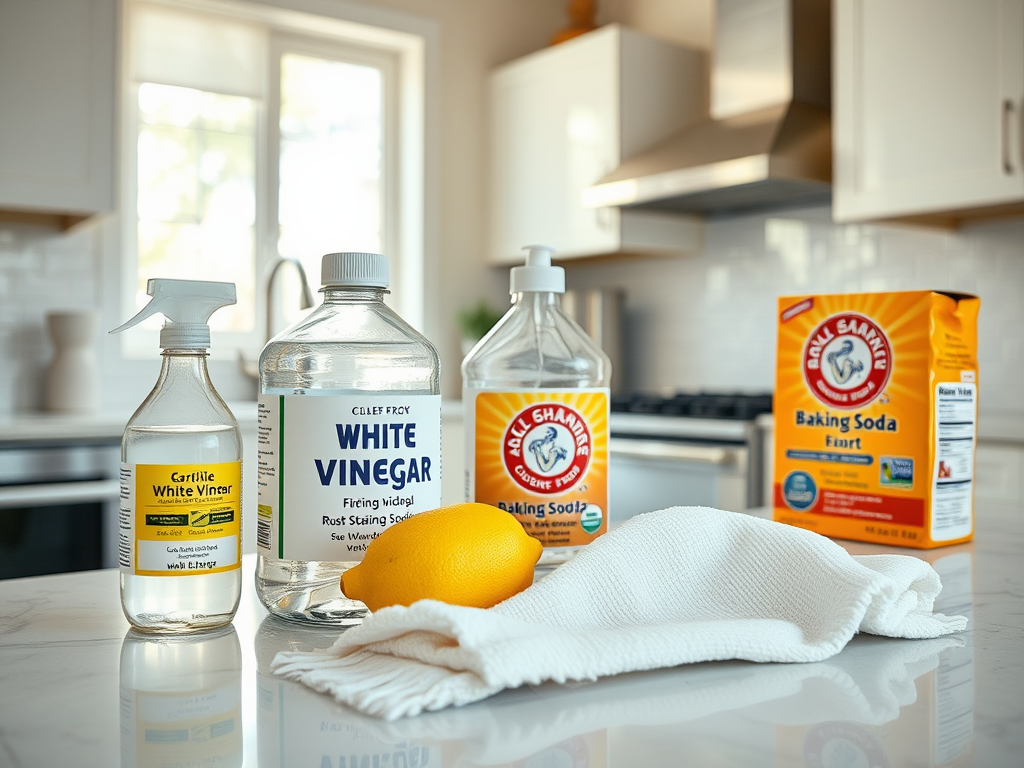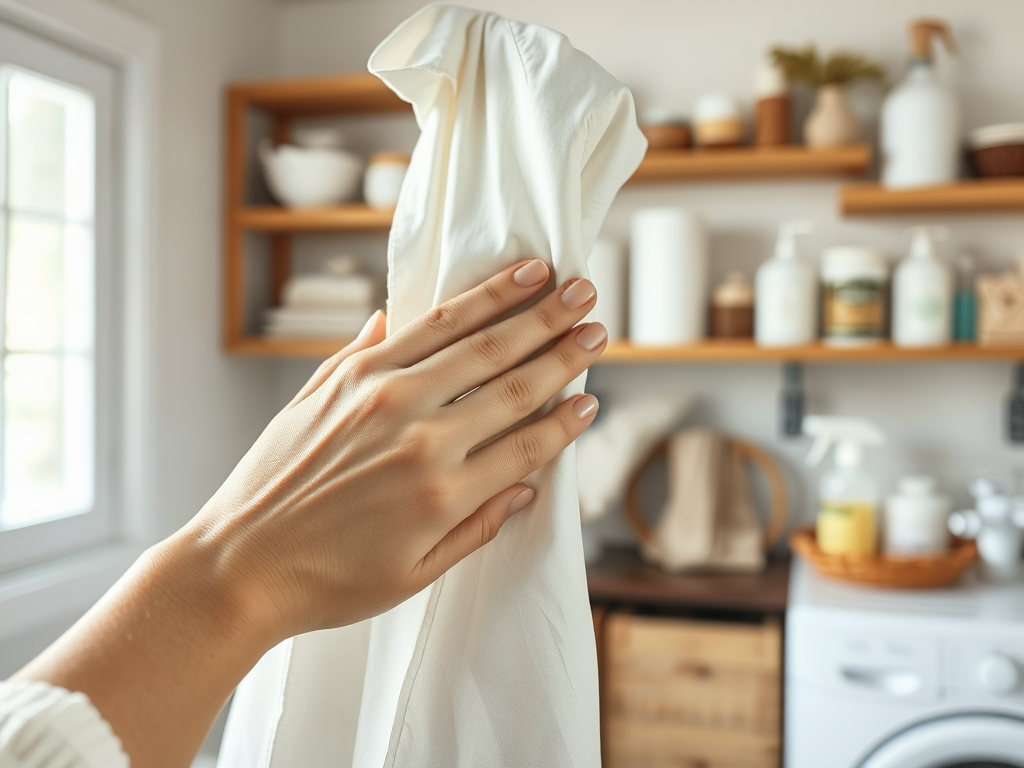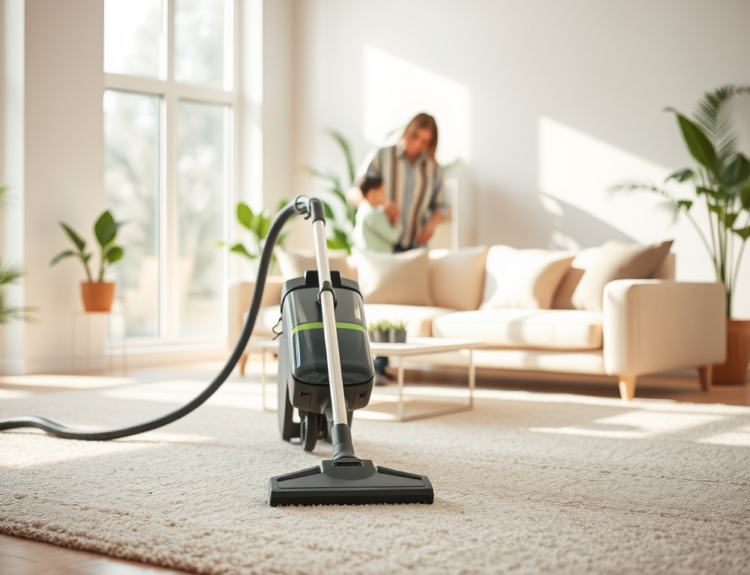Rust stains, while often overlooked, can pose a significant threat to the integrity and beauty of delicate fabrics. Whether it’s an elegant silk dress or a lightweight cotton blouse, discovering a rust stain can send you into a panic, fearing irreversible damage. Fortunately, the approach to removing these stains can be simple if you know what methods to use. Instead of relinquishing your favorite garments to the harsh grip of rust, this guide will equip you with effective techniques to restore their original appearance. Not only will we break down common causes of rust stains, but you’ll also find methods suited for various fabric types, ensuring you can protect your precious items without fear. So let’s dive into the world of rust stain removal and give those fabrics a second chance!
Understanding Rust Stains and Their Causes

Rust stains can be a common yet frustrating issue, especially on delicate fabrics. Understanding what causes these stains is the first step in effectively treating them. Surprisingly, rust can lurk in places you may not expect. Many individuals are unaware that rusty components in their washing machines could be the primary culprit behind the discoloration of their favorite clothes. Additionally, simply coming into contact with metal furniture or tools can result in unsightly marks. Natural elements, like rainwater with high mineral content, also contribute to rust stains on fabrics.
- Washing machines with rusty parts
- Metal furniture or tools in contact with fabrics
- Natural elements such as rain or water with high mineral content
- Improper storage of fabrics near metal objects
- Outdoor activities resulting in contact with rust-prone surfaces
Preparing to Treat Rust Stains

Before you reach for your cleaning supplies, proper preparation is essential to avoid further damage to delicate fabrics. Taking the time to assess the fabric type will ensure that you’re using suitable methods tailored to its unique characteristics. For instance, different materials require different care, and knowing whether your fabric is silk, cotton, or polyester will guide your cleaning process. Once assessed, it’s time to gather the necessary supplies. Having everything ready will streamline your effort and enhance the likelihood of success.
Assess the Fabric Type
- Identify fiber content: cotton, silk, polyester, etc.
- Check fabric care labels for specific cleaning recommendations
- Consider thread count for fragile fabrics
Gather Necessary Supplies
- Mild fabric detergent
- White vinegar or lemon juice
- Soft cloths and sponges
- Cold water
Techniques for Rust Removal
When it comes to rust removal, you have several methods at your fingertips to safely and effectively banish stains from delicate fabrics. The right technique depends on the fabric type and the severity of the stain. Below are some popular methods that can empower you to tackle even the most stubborn rust stains without damaging your prized garments. Each method employs natural ingredients or gentle commercial products to ensure the safety of your delicate fabrics while delivering effective results.
Vinegar and Baking Soda Method
This combination not only works wonders but is also safe for most fabrics. Mixing vinegar and baking soda creates a chemical reaction that can effectively lift stains. Here’s how to do it:
- Apply white vinegar directly to the rust stain.
- Sprinkle baking soda over the vinegar.
- Allow the mixture to bubble for a few minutes, letting it penetrate the stain.
- Gently blot the stain with a soft cloth until the stain begins to lift.
Lemon Juice and Salt Method
Lemon juice is another natural option that’s effective when combined with salt. This mixture acts as a mild bleaching agent, making it particularly useful on colorfast fabrics. Follow these steps for best results:
- Extract fresh lemon juice and soak the affected area.
- Sprinkle some salt over the lemon juice to enhance the reaction.
- For added potency, let it sit in the sun for a while.
- Finally, rinse with cool water to remove any residue.
| Method | Best For | Notes |
|---|---|---|
| Vinegar & Baking Soda | Cotton, polyester | Effective and safe for most fabrics |
| Lemon Juice & Salt | Colorfast fabrics | Natural bleaching; avoid on non-colorfast items |
| Commercial Rust Remover | Heavy stains on delicate fabrics | Test on a small area first |
Commercial Rust Removers—Use with Caution
If home remedies fail to alleviate the stain, consider using a commercial rust remover specifically formulated for delicate fabrics. However, this should always be done with caution. Always perform a patch test on a small, inconspicuous area of fabric to check for any adverse reactions before applying it liberally.
Additional Tips for Prevention
Taking preventive measures against rust stains is undeniably easier than dealing with them after they occur. By implementing a few simple strategies, you can significantly reduce the risk of staining your delicate fabrics. First and foremost, proper storage is crucial. Always store fabrics using breathable bags or containers to stave off moisture buildup. Additionally, keeping garments away from rust-prone metal objects can eliminate that risk entirely. Another essential tip is to perform regular maintenance checks on the appliances you use for fabric care, as they can unknowingly lead to issues.
Store Fabrics Properly
- Use breathable fabric bags to avoid moisture buildup.
- Keep garments away from metal objects that can rust.
- Store in a dry, ventilated area to prevent dampness.
Regular Maintenance Checks
- Inspect washing machines regularly for rust.
- Clean any metal furnishings that come into contact with fabrics.
- Replace rusted components on tools and equipment.
Conclusion
Removing rust stains from delicate fabrics doesn’t have to be a daunting task. By understanding the causes, preparing adequately, and employing safe removal techniques, you can restore your fabrics without causing damage. It’s essential to prioritize preventative measures to ensure that your delicate items remain in pristine condition for years to come. Whether using natural methods or commercially available products, always proceed with caution and care. With the right approach, those rust stains can become a thing of the past, leaving your favorite garments looking as vibrant as ever!
Frequently Asked Questions
- What should I do if the rust stain persists after treatment? If the stain remains, repeat the chosen method or try an alternative technique outlined in the article.
- Is it safe to use bleach on rust stains? No, bleach can damage delicate fabrics further and may cause discoloration. It’s best to use natural remedies or commercial products specifically designed for fabric stains.
- Can I apply heat to speed up the rust removal process? Avoid using heat, as it can set the stain permanently. Always treat rust stains with cool water and avoid drying until the stain is completely removed.
- What types of fabrics are most susceptible to rust stains? Delicate fabrics like silk, wool, and light cotton are more prone to staining, so take extra caution when cleaning these materials.



